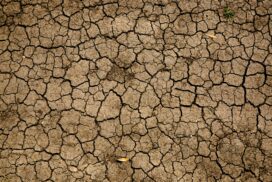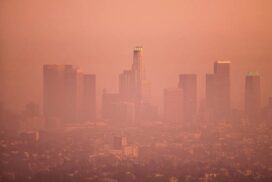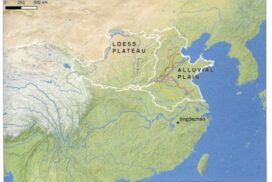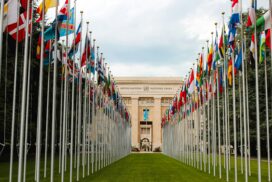A blog devoted to the research and teaching of the history of humanity, aimed at enlivening the teaching of history, linking it to current social problems and debates.
Group Behavior Among Animals
The information that animals take in—combined with the signals they outwardly project—has enabled the formation of groups and group behavior. This development can be traced throughout the Animal Kingdom from early times to the present.
Global Opinions and United Nations Reform
Examples of past (and current) global protests show how people in different nations—and with differing political views—come together to make a statement about human values. Such global activism is powerful; it may even have an impact in reshaping the United Nations.
Environment Since the 1980s
Environmental degradation continues to outpace reform. What are the key factors driving this crisis and humanity's understanding of it? And what might offer the best chance of limiting environmental collapse?
A Timeline of the Rise of Environmentalism: 1940s–1970s
Climate and the environment are top policy issues today. In this blog post—the first in a two-part series—I trace the history of these topics. I highlight key trends and moments in history that exacerbated environmental degradation, as well as those that shaped public opinion about such destruction. I also outline key scientific advances that have… Read More »A Timeline of the Rise of Environmentalism: 1940s–1970s
Early Modern History: Porcelain and the Yellow River in China
Early Modern History, a subfield of World History, explores the centuries before 1800 CE. The Journal of Early Modern History, since 1997, has shown the importance of global interactions for the period from 1300 to 1800 CE. In addition, recent studies are expanding the scope of the “early modern” era to even earlier times, including… Read More »Early Modern History: Porcelain and the Yellow River in China
Why Is Democracy on the Decline? A Look at Global Trends from V-Dem
The 2024 V-Dem report on global democracy seeks to explain the rise in autocracy around the world. I explore this report through comparisons of global politics at different levels—and consider what effect international organizations may have on democracy.
The Campaign for United Nations Reform
The campaign to reform the United Nations Security Council may indeed come to a head at the Summit of the Future in September. What are the key aspects of this debate? What might happen if the campaign succeeds? Or if it fails?
Who Rules the World Today?
If the United Nations and its members can resolve the current crisis in Gaza—by ending the war and moving toward the recognition of a Palestinian state—U.S. officials will likely learn to pay more attention to the UN, its significance, and its structures.







